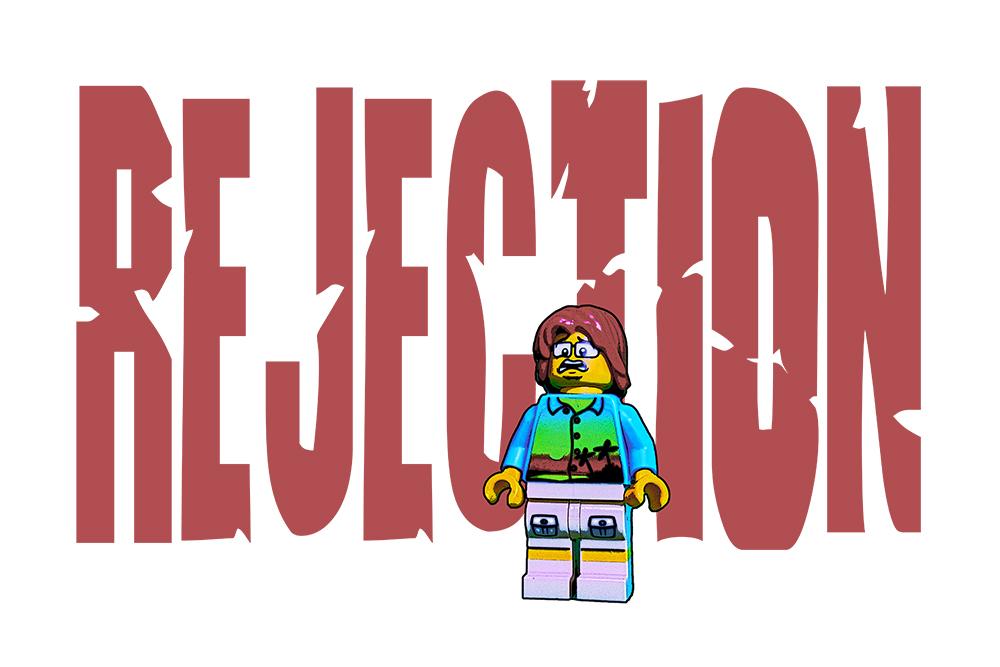Facing the fear of rejection is a common challenge that many of us encounter at various points in our lives, whether it be in personal relationships, professional endeavors, or social interactions. This fear can be paralyzing, preventing us from pursuing opportunities, expressing our true selves, or even taking necessary risks that could lead to growth and fulfillment. Understanding that this fear is a natural human experience is the first step towards overcoming it. In this article, we will explore practical and compassionate strategies to help you navigate and conquer the fear of rejection, empowering you to embrace life with confidence and resilience. Whether you’re looking to enhance your personal life, advance your career, or simply find more peace in your daily interactions, these tips are designed to support you on your journey to overcoming fear and embracing possibility.
Understanding the Roots of Your Fear
Fear of rejection often stems from deep-seated experiences or beliefs that have taken root over time. It’s essential to recognize these origins to address and overcome this fear effectively. Many individuals find that their anxiety around rejection is linked to past experiences, such as critical feedback during childhood or significant failures that left a lasting impression.
- Reflect on Past Experiences: Consider moments in your life where rejection played a pivotal role. Were there specific events or relationships that intensified this fear?
- Identify Patterns: Look for recurring themes or triggers. Do certain situations or people amplify your fear of rejection?
- Challenge Negative Beliefs: Often, this fear is tied to negative self-talk or limiting beliefs. Recognize these thoughts and work towards reframing them positively.
can also involve examining societal and cultural influences. Many people are conditioned to view rejection as a personal failure, rather than a natural part of life. By acknowledging these external factors, you can start to reshape your perception of rejection and reduce its emotional impact.
| Root Cause | Impact |
|---|---|
| Past Criticism | Lowered Self-esteem |
| Perfectionism | Fear of Failure |
| Cultural Norms | Increased Anxiety |

Building Self-Compassion and Resilience
- Recognize Your Inner Critic: It’s essential to identify that harsh voice inside your head that magnifies fears and doubts. By acknowledging its presence, you can start to reframe its messages. Instead of letting it dictate your feelings, challenge it with questions like, “Is this thought true?” or “What evidence do I have that contradicts this?” This practice helps to build a more balanced and compassionate inner dialogue.
- Practice Self-Compassion: Treat yourself with the same kindness and understanding you would offer a dear friend. Whenever you face rejection, remind yourself that it’s a common human experience. Embrace your imperfections and understand that they do not define your worth. Consider using affirmations or journaling to reinforce positive self-talk.
- Build Emotional Resilience: Strengthen your ability to bounce back from setbacks by developing coping strategies. Engage in activities that replenish your energy and lift your spirits, such as exercise, meditation, or creative hobbies. Establish a support system of friends or mentors who can provide encouragement and perspective when you need it most.
| Emotion | Positive Reframe |
|---|---|
| Fear | “This is an opportunity for growth.” |
| Disappointment | “Every setback is a setup for a comeback.” |
| Self-Doubt | “I am capable and worthy.” |

Practicing Exposure to Rejection in Safe Environments
Facing rejection is often daunting, but practicing in controlled settings can significantly reduce the fear associated with it. By intentionally placing yourself in scenarios where the stakes are low, you can gradually build resilience. Consider these approaches to create a safe environment for practicing exposure to rejection:
- Role-playing: Engage in role-playing exercises with friends or colleagues. This allows you to experience rejection in a supportive setting, where feedback is constructive and intentions are positive.
- Improv Classes: Enroll in improv classes where the focus is on spontaneity and embracing mistakes. These sessions are not only fun but also provide a platform to experience minor rejections in a non-judgmental atmosphere.
- Social Challenges: Set small, achievable social challenges for yourself, such as asking for a discount at a store or requesting a favor from a stranger. The idea is to get comfortable with hearing “no” without significant consequences.
| Activity | Rejection Risk Level | Environment |
|---|---|---|
| Requesting Feedback on a Project | Low | Workplace |
| Asking for Directions | Very Low | Public |
| Joining a Debate Club | Medium | Community Center |

Developing a Growth Mindset for Personal Empowerment
Fear of rejection can be a powerful barrier, but adopting a growth mindset can transform this fear into a stepping stone for personal empowerment. Here are some strategies to help you navigate through these feelings:
- Reframe Rejection: View rejection not as a personal failure but as a valuable learning experience. Each “no” is an opportunity to refine your approach and build resilience.
- Embrace Vulnerability: Understand that vulnerability is a strength, not a weakness. Being open to rejection means you’re willing to put yourself out there, which is a significant step towards growth.
- Focus on Growth: Set specific, achievable goals that prioritize learning over immediate success. Celebrate small victories and progress, which reinforces a positive mindset.
To help visualize the benefits of overcoming fear of rejection, consider the following table:
| Situation | Growth Mindset Response | Outcome |
|---|---|---|
| Job Application Rejection | Analyze feedback and improve skills | Enhanced resume and interview skills |
| Social Rejection | Seek new connections and experiences | Broader social network and enriched experiences |
| Creative Project Criticism | Incorporate constructive feedback | Improved creative output and confidence |
By shifting your perspective, you can transform fear into a catalyst for personal empowerment, paving the way for a more resilient and fulfilled life.








































